What time to watch the solar eclipse 2024 in NYC — a viewer’s guide to all five boroughs
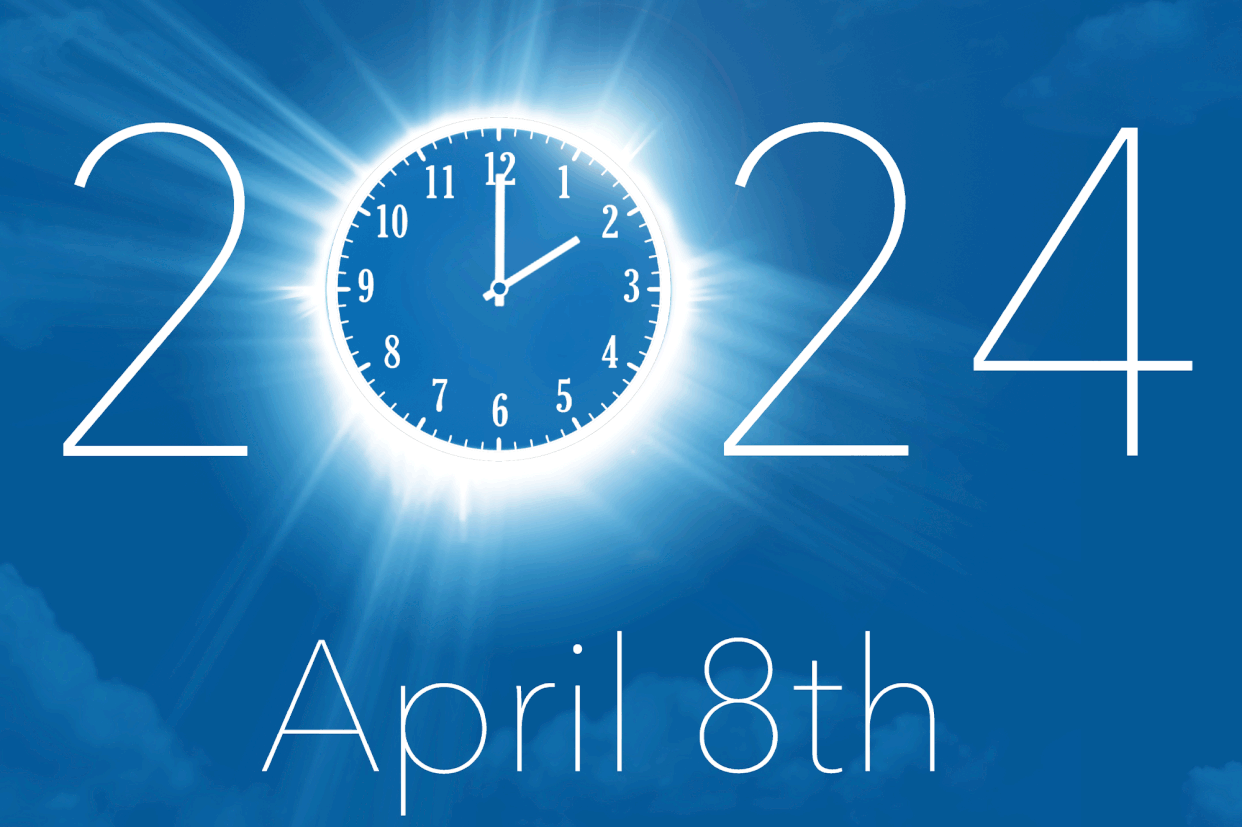
Ready your excuses to be “busy” this afternoon.
The solar eclipse — the celestial event of the decade — is finally here.
The rare celestial event, during which the moon will pass between the sun and Earth, will start around 2 p.m. in the City That Never Sleeps and last until about 4 p.m.
Although the Big Apple is not in the path of a total eclipse, New Yorkers can expect to start seeing it around 2:51 p.m., with thesun about 90% covered by 3:25 p.m.
The closest area to New York City that will see a total solar eclipse is Buffalo, which will be able to view the sun completely covered by the moon for three minutes and 31 seconds from 3:18 to 3:21 p.m., according to NASA.
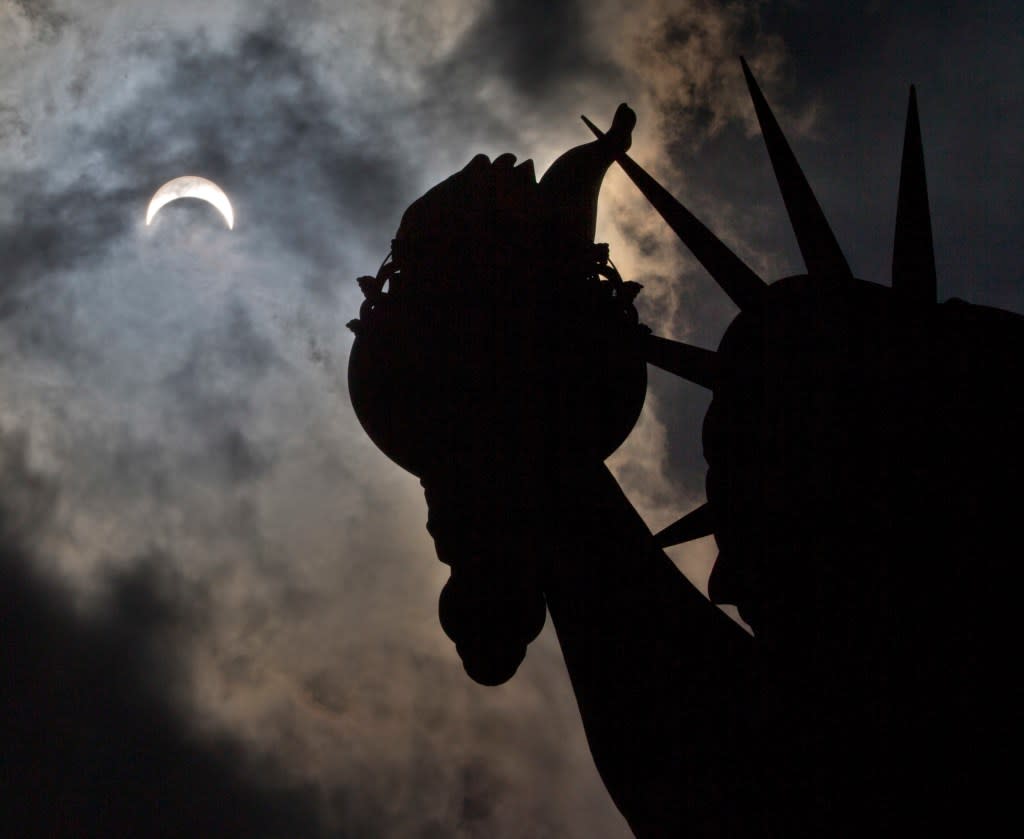
Citygoers can expect fair weather during the solar even, with cloudy skies only forecasted to interfere with the Midwest and South and a few over Niagara Falls, which has declared a state of emergency due to the influx of expected visitors.
The next time a solar eclipse will pass over a large part of the US isn’t until 2044.
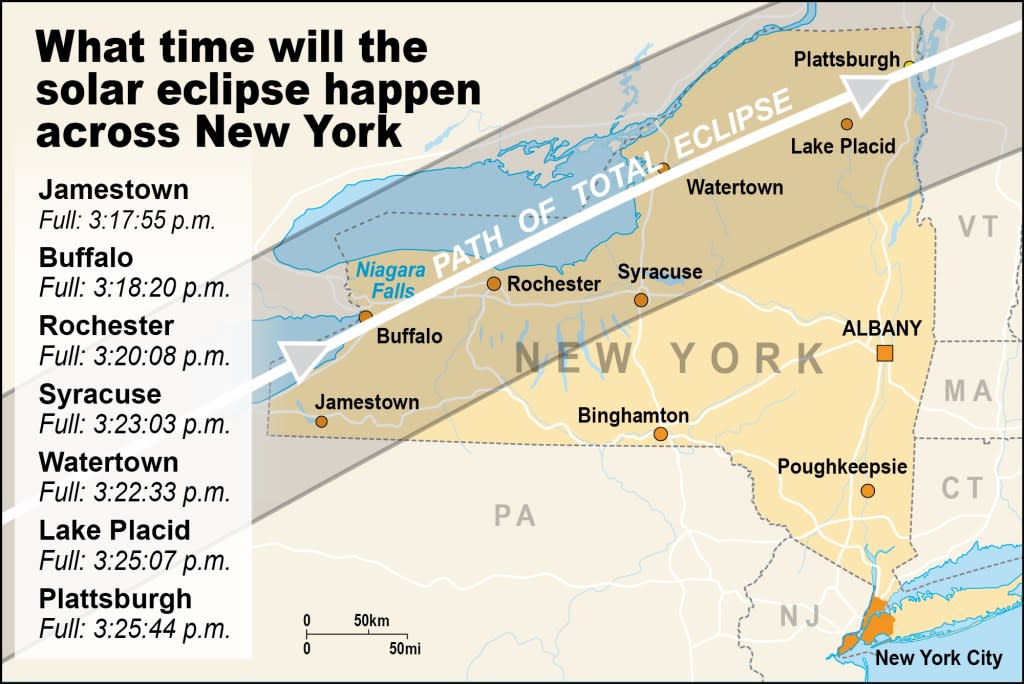
Best time to view the eclipse in NYC?
New Yorkers in any of the five boroughs should be prepared to view the eclipse at its peak for the region at 3:25 p.m., NASA said.
The phenomena will begin at 2:10 p.m., but viewers won’t begin to see the shift until around 2:51 p.m., when the moon will start to block the sun from the lower right before hitting 90% totality around 3:25 p.m.
But don’t fear! Even if you miss it at its peak, you can still see a partial eclipse until around 4 p.m.
It will fully clear away by 4:36 p.m., according to NASA.
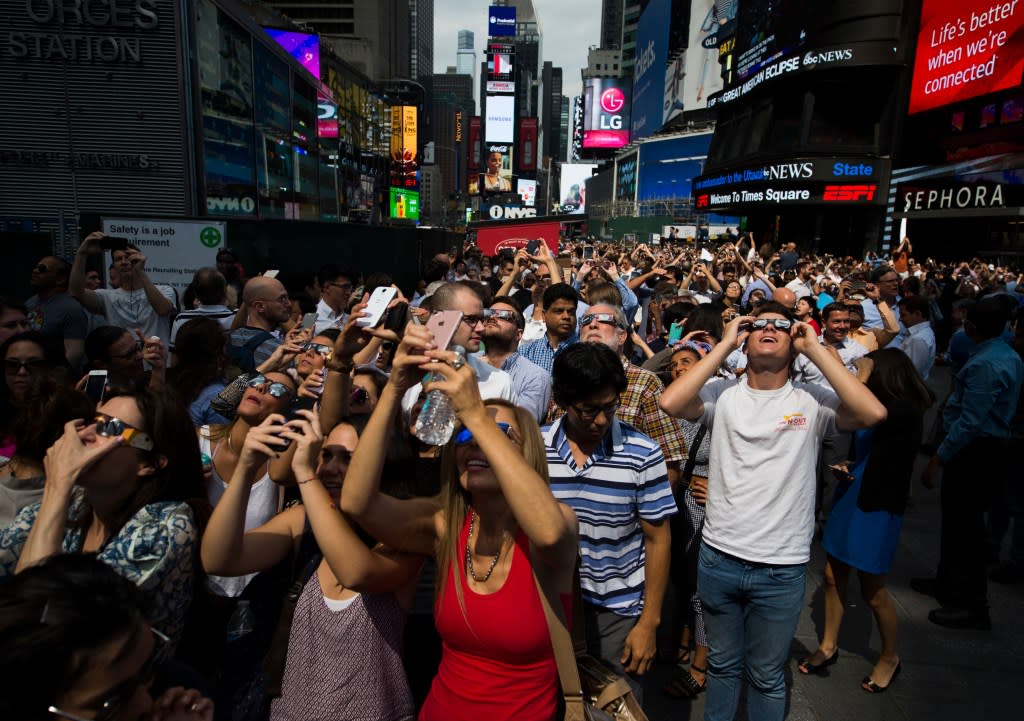
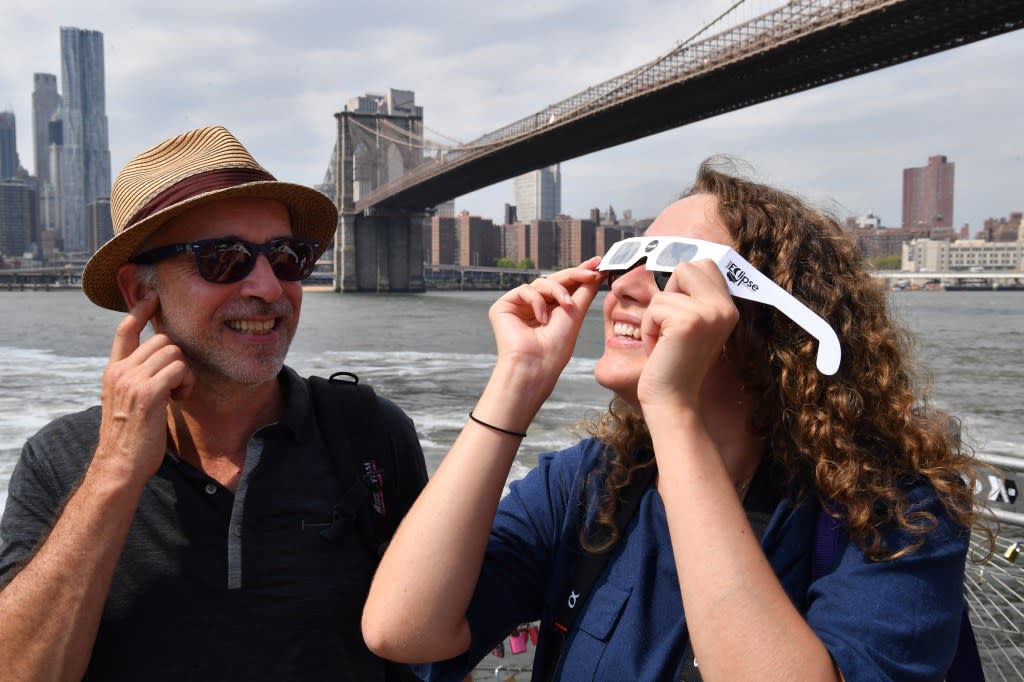
Where can you view the eclipse in NYC?
If you’re not stuck at work on a Monday afternoon, plenty of NYC spots are hosting viewing parties.
Top of the Rock Observation Deck will have a viewing party from 12 to 4 p.m.
Tavern on the Green is also hosting a solar eclipse party — a first-ever for the venue — from 2 p.m. to 5 p.m. An astronomer from Columbia University will give guests a 30-minute educational presentation on the eclipse, according to Forbes.
Another observation deck, The Edge — the highest outdoor sky deck in the Western Hemisphere — will hand out eclipse glasses to its guests and offer a special cocktail at the bar to purchase.

Where to get free solar eclipse glasses?
Though the Big Apple won’t see a total eclipse, it is still necessary to wear protective eyewear to avoid suffering eye damage that can lead to blind spots, flashes and distortion.
The shades are similar to those you get at 3D movies.
Public libraries across the city will be handing out glasses on a first-come, first-serve basis, and they can also be picked up at Moynihan Train Hall starting at 6:30 a.m.
It might be tempting to look at the sun without protective eyewear due to the darkness, but optometrists warn against it, saying they typically see more patients complaining of blind spots or blurry vision after the stunning phenomena.
